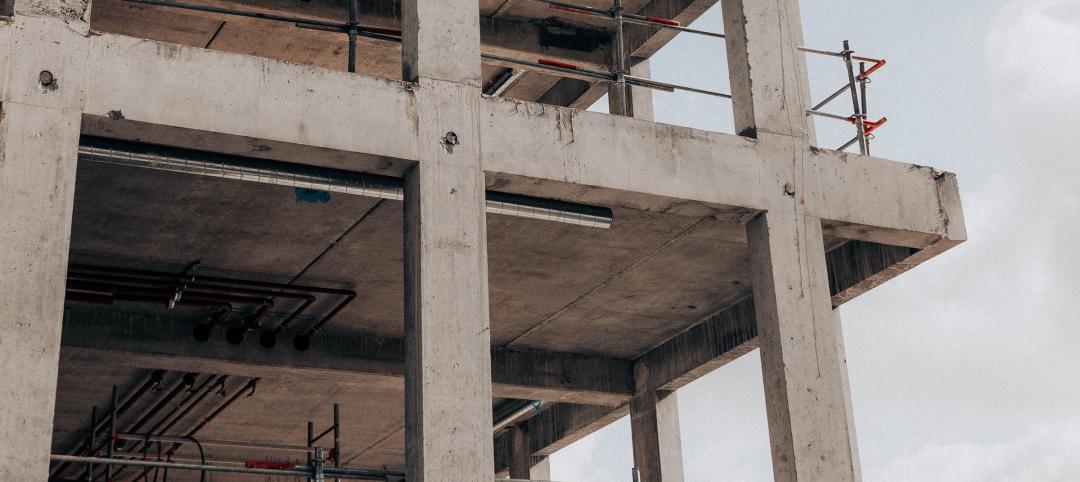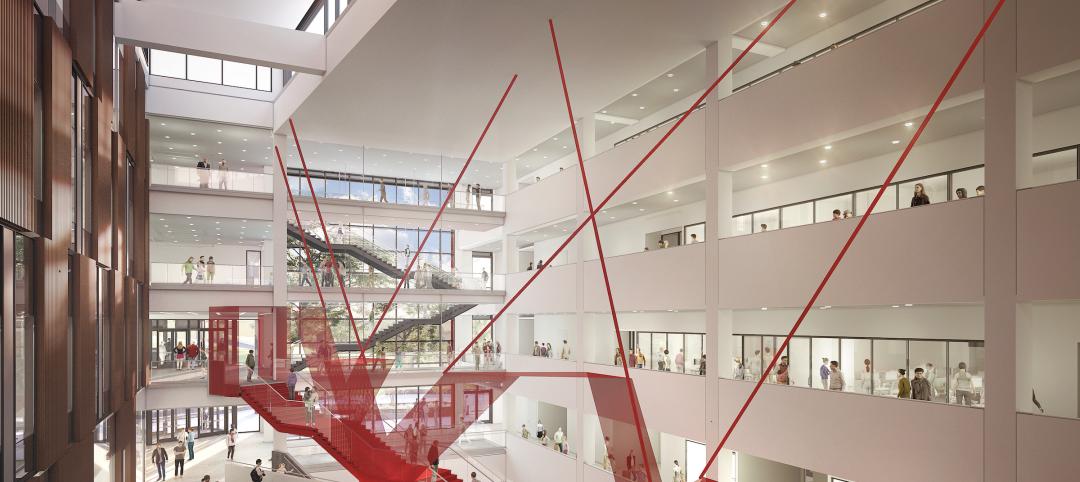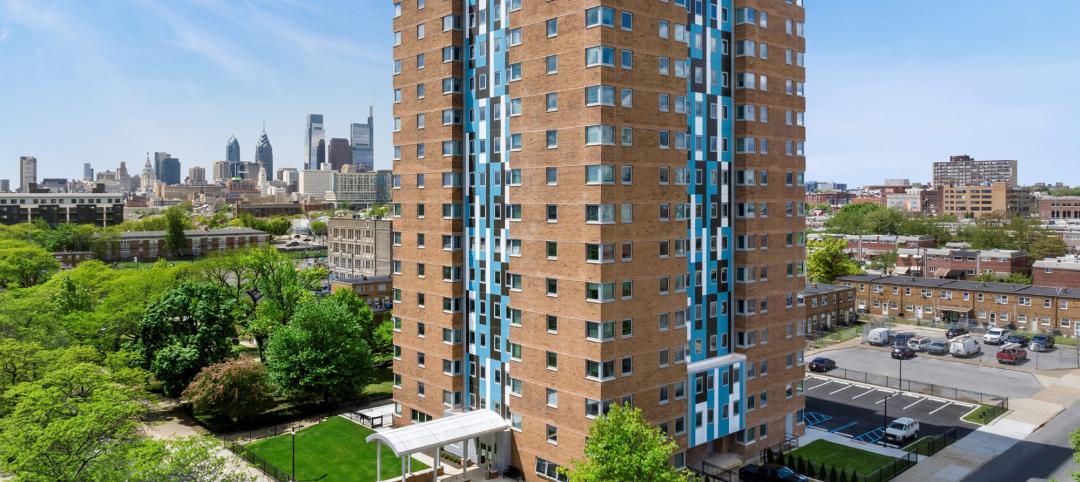| The intra-operative MRI system at the United Hospital Nasseff Neuroscience Center in St. Paul, Minn., will allow neurosurgeons to perform real-time MRI scans during operations to confirm that all cancerous tissue is removed during procedures. |
11. Operating Room-Integrated MRI will Help Neurosurgeons Get it Right the First Time
A major limitation of traditional brain cancer surgery is the lack of scanning capability in the operating room. Neurosurgeons do their best to visually identify and remove the cancerous tissue, but only an MRI scan will confirm if the operation was a complete success or not. Consequently, patients must be stitched up and wheeled into the MRI room for further scans. If cancer is still present, further surgery is often required.
To avoid putting its patients through this painful cycle of surgeries and scans, the United Hospital Nasseff Neuroscience Center in St. Paul, Minn., is collaborating with HDR Architecture on an intra-operative MRI system. This "MRI on a track" will be able to move between two operating rooms and spin in any direction, allowing neurosurgeons to perform real-time MRI scans during operations.
"The neurosurgeon can use the intra-operative MRI to confirm that the entire tumor was removed before closing, thus reducing the need for additional operations," says Douglas S. Wignall, AIA, RAIC, international healthcare director with HDR Architecture, Omaha, Neb. In addition, Wignall says the mobility of the system allows the neurosurgeon to update images quickly and efficiently so that surgical adjustments and decisions can be made with pinpoint accuracy.
"This is one example of how architecture can help save lives," says Wignall.
| The new SYNC modular nursing station line from Nurture by Steelcase is designed to accommodate both centralized and decentralized spaces. |
12. Nursing Stations Go Modular
Modular nursing stations are designed to accommodate virtually any healthcare environment, whether for centralized or decentralized spaces, standard or high-tech facilities, or new or retrofit projects. HDR Architecture collaborated with Nurture by Steelcase on the SYNC line, which was inspired by the way people fit in cockpits and automobiles. It accommodates multiple users, heights, and movements.
The centralized solution is offered in three fixed heights—28½, 36, and 42 inches—to provide seated, service counter, and standing solutions. Widths are available in one-foot increments from five to nine feet, and integrated monitor arms have 160-degree adjustability for sharing information between caregivers. The product sits elevated off the floor, creating a light, minimalistic look.
The decentralized products provide height-adjustable (23 to 48 inches), fixed, or combination surfaces in eight shapes. Two-person configurations allow each work surfa
ce to be adjusted individually.
| A. Secondary MOB. B. MOB. C. Hospital. D. Nursing units. E. Signature entry rotunda. F. Future construction, including hospital expansion, additional MOB, clinic, and parking. G. Future helipad. |
13. Template Helps Hospitals Open Quickly and Efficiently
Faced with the unprecedented task of having to replace half its California hospital beds by 2015, Oakland, Calif.-based Kaiser Permanente, the nation's largest nonprofit HMO, enlisted SmithGroup and Chong Partners Architecture (now Stantec Architecture) to collaborate on the design of a new hospital template—a state-of-the-art, prototypical hospital that could be built on many different sites with only minimal changes to the basic concept for quick and efficient construction.
Luckily, the team wasn't starting from scratch. Over the years Kaiser had developed best-practices templates for emergency departments, patient rooms, and other individual clinical spaces and those pieces were combined into a single configuration for an entire hospital. The resulting template consists of common planning concepts, floor plans, equipment and furnishings, and structural and building systems. Exterior skins and colors vary from site to site. So far Kaiser has built five hospitals using the template, which shaved 15 to 18 months off its typical new hospital timeline.
Related Stories
Regulations | Oct 4, 2023
New York adopts emissions limits on concrete
New York State recently adopted emissions limits on concrete used for state-funded public building and transportation projects. It is the first state initiative in the U.S. to enact concrete emissions limits on projects undertaken by all agencies, according to a press release from the governor’s office.
Architects | Oct 4, 2023
Architects and contractors underestimate cyberattack risk
Design and construction industry firms underestimate their vulnerability to cyberattacks, according to a new report, Data Resilience in Design and Construction: How Digital Discipline Builds Stronger Firms by Dodge Construction Network and content security and management company Egnyte.
Luxury Residential | Oct 2, 2023
Chicago's Belden-Stratford luxury apartments gets centennial facelift
The Belden-Stratford has reopened its doors following a renovation that blends the 100-year-old building’s original architecture with modern residences.
Giants 400 | Oct 2, 2023
Top 30 Data Center Architecture Firms for 2023
Corgan, HDR, Gensler, Page Southerland Page, and HED top BD+C's ranking of the nation's largest data center sector architecture and architecture/engineering (AE) firms for 2023, as reported in Building Design+Construction's 2023 Giants 400 Report.
Market Data | Oct 2, 2023
Nonresidential construction spending rises 0.4% in August 2023, led by manufacturing and public works sectors
National nonresidential construction spending increased 0.4% in August, according to an Associated Builders and Contractors analysis of data published today by the U.S. Census Bureau. On a seasonally adjusted annualized basis, nonresidential spending totaled $1.09 trillion.
K-12 Schools | Oct 2, 2023
4 design strategies for successful K-12 magnet schools
Clark Nexsen's Donna Francis, AIA, Principal, and Becky Brady, AIA, share four reasons why diverse K-12 magnet schools require diverse design.
Architects | Sep 28, 2023
Nashville architecture firm ESa adds 14 principals
ESa has announced that 14 new principals have been added to the firm’s leadership. “As ESa continues to grow, we are excited to celebrate our newest ESa principals. These individuals embody the characteristics of a quality leader and have shown great leadership in client and team member relationships, project management and mentoring roles,” said Kevin Harney, ESa vice president and principal.
Construction Costs | Sep 28, 2023
U.S. construction market moves toward building material price stabilization
The newly released Quarterly Construction Cost Insights Report for Q3 2023 from Gordian reveals material costs remain high compared to prior years, but there is a move towards price stabilization for building and construction materials after years of significant fluctuations. In this report, top industry experts from Gordian, as well as from Gilbane, McCarthy Building Companies, and DPR Construction weigh in on the overall trends seen for construction material costs, and offer innovative solutions to navigate this terrain.
University Buildings | Sep 27, 2023
Top 170 University Building Architecture Firms for 2023
Gensler, CannonDesign, Page Southerland Page, SmithGroup, and Ayers Saint Gross top the ranking of the nation's largest university sector architecture and architecture/engineering (AE) firms, as reported in Building Design+Construction's 2023 Giants 400 Report.
Affordable Housing | Sep 25, 2023
3 affordable housing projects that serve as social catalysts
Trish Donnally, Associate Principal, Perkins Eastman, shares insights from three transformative affordable housing projects.



















